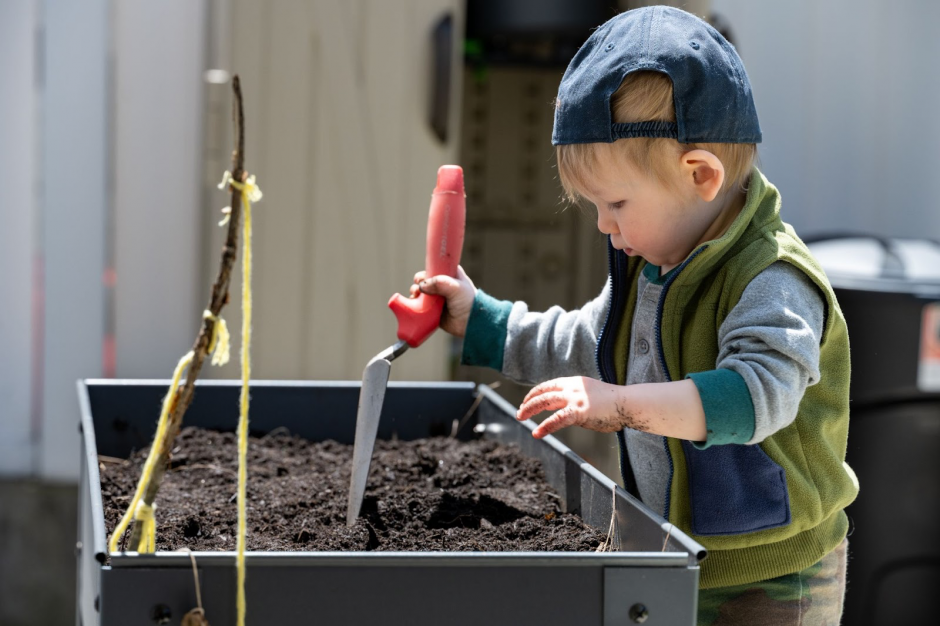Gardening has long been revered as an outlet of stress relief. Not only can it provide peace of mind, but starting a family garden comes with many rewards – as well as risks. Before taking this leap into dirt digging territory, let’s consider both its pros and cons before diving right in!

Photo by Christopher Luther on Unsplash
Quality Family Time
Gardening provides families with an ideal way to spend quality family time while working on a project together. Gardening can be both entertaining and educational – parents and children can bond while learning lessons in nature appreciation, patience management, responsibility and teamwork.
Growing Your Own Produce
Home gardening can help foster healthy eating habits among children by showing them where their food comes from and providing fresher produce than what’s found at supermarkets.
Stress Relief
Gardening has long been proven to provide stress relief. Working together in the garden gives everyone an outlet to release stress, relax, and unwind from everyday life.
Get Creative
Gardening can be an effective way for children to develop their creativity. While planning their garden, they can come up with creative and innovative ways to plant fruits and vegetables into eye-catching patterns or designs.
Build Confidence
Watching something you planted grow from seedling to harvestable crop can be immensely satisfying and will give your children an amazing sense of achievement, increasing both their self-esteem and giving them greater confidence for other aspects of life.
Learning Responsibility
Engaging kids in gardening teaches them responsibility, cultivates ownership and instills the value of hard work while rewarding efforts with tangible rewards. Under guidance, children can discover the significance of taking good care in everything they create – an invaluable lesson.
Develop Problem-Solving Skills
Gardening requires problem solving and creativity when different situations arise, such as watering plants evenly or finding creative solutions like making compost from kitchen scraps. Gardening promotes critical thinking skills which will be useful throughout life. It encourages children’s critical thinking capabilities as well as problem-solving abilities which they’ll need in many other aspects.
Grow New Tastes
Producing food on your own can open your palate to new experiences, tastes and flavors that you may never encounter at the supermarket. Growing food allows kids to experience homegrown delights like tomatoes or peppers that offer superior flavors compared to those purchased from stores.
Making Time to Play Outdoors
Spending time outside is an ideal way for children to stay active and avoid screens for an afternoon, while gardening provides an exceptional outlet. Working in the garden also encourages physical activity through tasks like digging holes, carrying water containers or pulling weeds – activities which kids love!
Care of Plants Can Teach Children About Responsibility
Caring for plants can teach children valuable lessons about responsibility and caring for something on a long-term basis; from planting seeds to watering regularly. It provides them with a great opportunity to understand how important long-term commitment can be while taking ownership over their work.
Supervise Closely
It is vital that children gardening be closely supervised. Depending on the age and type of garden the child is working in, there may be risks including being cut by sharp tools or encountering toxic plants that pose potential threats.
Take Time for Planning
Gardening with children can be lots of fun, but it requires careful planning. If you’re starting from scratch, make sure you conduct extensive research on suitable plants for your area, along with best growing conditions and any special care instructions for each variety.
Be Prepared for Messes
Gardening can be an unruly activity and accidents may happen. Be ready for them by providing plenty of rags or extra clothing just in case kids get dirty while gardening and make sure that they understand that any foods found in the garden must first be verified with an adult before being eaten by themselves.
Keep Expectations Realistic
While gardening can teach children about nature and help develop patience, it is also important to remember that gardening takes time and can be frustrating for both you and your child. Be realistic with expectations for them when setting realistic garden designs without placing undue pressure or stress on them to produce perfect gardens.
Allergies
Before beginning a gardening project with your child, first make sure they do not have allergies that could be aggravated by it. If they do, take extra precautions to keep them safe and comfortable – for instance, knowing how to treat a runny nose or itchy eyes caused by exposure to pollen or plant dust is also very useful information.

Photo by Glenn Carstens-Peters on Unsplash
Gardening can be an excellent way for kids to learn about nature while simultaneously developing patience. It is essential that realistic expectations be set, allergen considerations taken into account and supervision provided as your child learns the fundamentals. With some guidance and practice from you as their instructor, your budding gardener could quickly blossom!
This is a contributed post.
